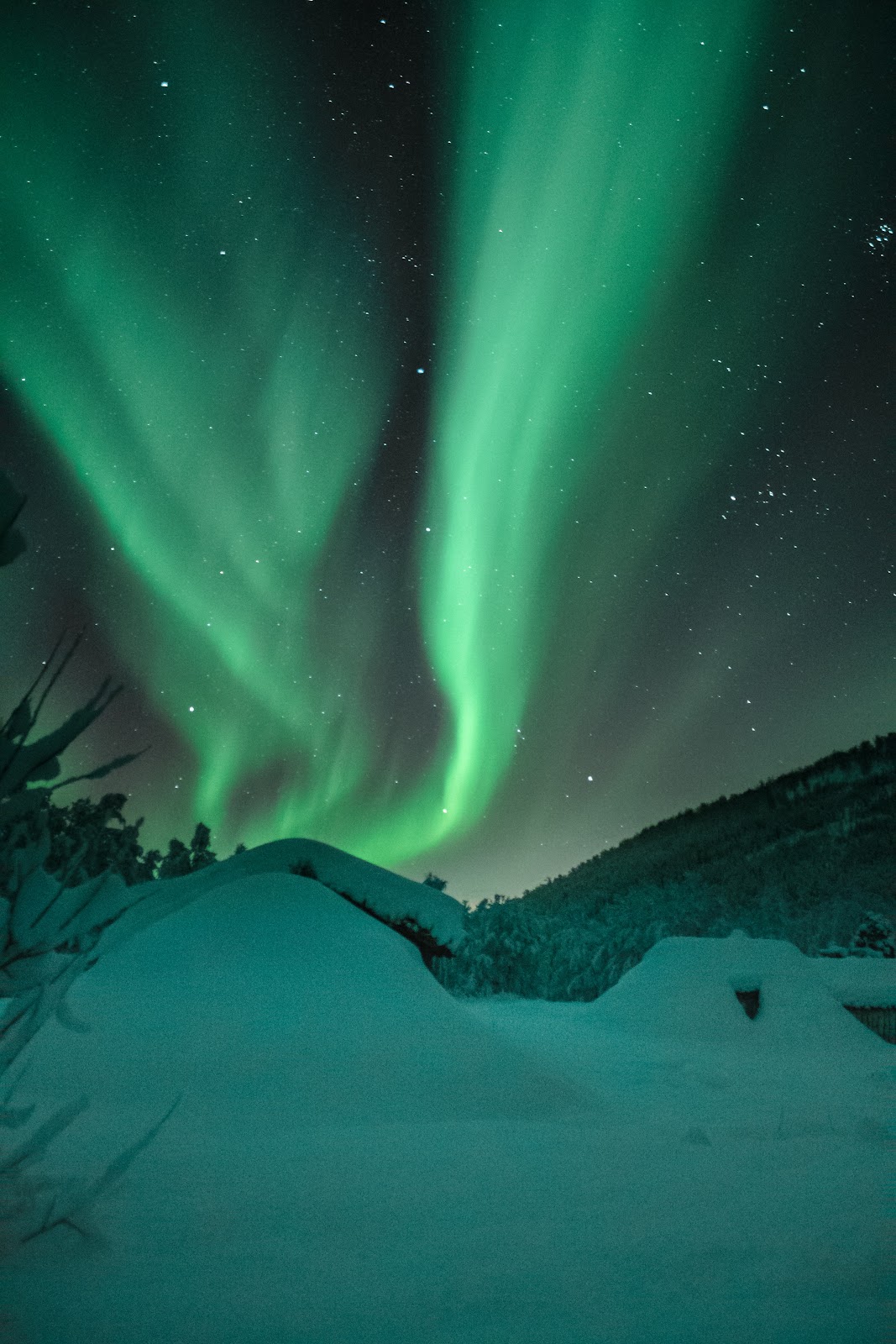Introduction:
The Northern Lights, also known as the Aurora Borealis, are one of the most awe-inspiring natural phenomena on Earth. This stunning display of light in the night sky has captivated people for centuries and continues to draw visitors from around the world to the Arctic Circle each year.
The Northern Lights are caused by charged particles from the
sun colliding with the Earth's magnetic field and atmosphere. When these
charged particles collide with the gases in the Earth's atmosphere, they create
a beautiful display of light in the sky.
The most common color of the Northern Lights is green, which
is caused by collisions with oxygen atoms in the Earth's atmosphere. However,
depending on the type of gas particle that the charged particles collide with,
the Northern Lights can also appear in shades of red, blue and even purple.
Where can you see the Northern Lights?
The Northern Lights can be seen in the polar regions,
particularly in the Arctic Circle. Some of the best places to see the Northern
Lights include Norway, Sweden, Finland, Iceland, Canada and Alaska.
However, it's important to note that the Northern Lights are
a natural phenomenon, therefore their appearance can never be guaranteed.
In order to have the best chance of seeing the Northern Lights, it's important
to visit during the winter months, when the nights are longest and the skies
are darkest. You should also try to find a location that is far away from
artificial light sources, as this can interfere with your ability to see the
Northern Lights.
When is the best time to see the Northern Lights?
The Northern Lights can be seen year-round, but they are
most commonly seen in the winter months, between November and March. During
this time, the nights are longest and the skies are darkest, which provides
optimal viewing conditions for the Northern Lights.
In addition, the Northern Lights are more likely to occur
during periods of high solar activity, which happens roughly every 11 years.
During these periods, known as the solar maximum, the Northern Lights can be
particularly spectacular.
How to view the Northern Lights?
Viewing the Northern Lights requires a clear, dark sky, away
from artificial light sources. It's also important to dress warmly, as
temperatures in the Arctic Circle can be very cold, even during the Northern
Lights season.
In order to have the best chance of seeing the Northern
Lights, it's recommended to take a guided tour with a reputable tour operator.
These tours typically take you to the best viewing locations and provide you
with information about the science behind the Northern Lights.
If you're feeling adventurous, you can also opt to stay in
an ice hotel or a glass igloo, which provide a unique and unforgettable viewing
experience of the Northern Lights.
What makes the Northern Lights so special?
There's no denying that the Northern Lights are a stunning
display of light in the night sky. But what makes them so special?
For one, the Northern Lights are a reminder of the beauty
and wonder of our planet. They serve as a reminder of the incredible natural
processes that are constantly occurring around us, even if we can't always see
them.
In addition, the Northern Lights are a symbol of the
interconnectedness of our planet. They are caused by the interaction of charged
particles from the sun with the Earth's magnetic field and atmosphere, which
shows just how connected our planet is to the larger universe.
Finally, the Northern Lights are a source of inspiration and
creativity for many people. From poets to photographers to painters, artists of
all kinds have been inspired by the beauty and mystery of the Northern Lights.
Conclusion:
The Northern Lights are a fascinating and
awe-inspiring natural phenomenon that continue to captivate people from all
over the world. From the science behind their creation to the cultural
significance they hold in different parts of the world, the Northern Lights are
a reminder of the beauty and interconnectedness of our planet. Whether you're a
scientist, an artist, or simply someone who appreciates the beauty of the
natural world, witnessing the Northern Lights is an experience that is sure to
leave a lasting impression. So, if you ever have the opportunity to see the
Northern Lights for yourself, seize it - it's a unique and unforgettable
experience that you won't regret.

Comments
Post a Comment